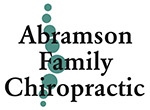Prediabetes Linked to Several Poor Outcomes.
Prediabetes is a term used to describe elevated blood sugar levels that have not yet reached the threshold for diabetes diagnosis. An umbrella review of 95 meta-analyses found evidence that prediabetes is associated with an increased incidence of coronary heart disease, stroke, heart failure, atrial fibrillation, chronic kidney disease, liver cancer, hepatocellular carcinoma, breast cancer, and dementia. Diabetologia, February 2022
Diet: How Red Meat Increases Cardiovascular Disease Risk.
New research suggests that microbes in the digestive tract convert carnitine—an ammonium compound found in red meat—into trimethylamine N-oxide (TMAO), which is a molecule known to promote atherosclerosis and blood clot formation. Nature Microbiology, December 2021
Exercise: Exercise Protects the Muscles, Bones, and Joints.
A review of data from the 1999-2018 National Health and Nutrition Examination Survey revealed that meeting fitness guidelines of 150 minutes of moderate-intensity physical activity a week can reduce the risk for sarcopenia, osteoporosis, and osteoarthritis in middle-aged and older adults. Experimental Gerontology, February 2022
Chiropractic: Overactive Bladder and Low Back Pain.
Evaluation of 72 women, half with overactive bladder syndrome, revealed that those with an overactive bladder had reduced lumbopelvic stability and a greater risk for low back pain, poor sleep quality, fatigue, anxiety, and depression. The findings suggest that treatment options to improve lumbopelvic stability, such as chiropractic care, may benefit women with overactive bladder syndrome. Somatosensory & Motor Research, December 2021
Mental Attitude: Teens Spend Four Hours a Day Online
Interviews with over 5,000 teenager-parent pairs revealed that adolescents average about 3.9 hours of leisure screen time a day. Past research has shown that excessive screen time can increase the risk for poor outcomes like depression, anxiety, inattention, poor sleep, and physical inactivity. Academic Pediatrics, December 2021
Wellness/Prevention: How a High-Fat Diet Can Promote Poor Dental Health
An animal study found that mice on a high-fat diet experienced an increase in immune cells called myeloid-derived suppressor cells (MDSCs) that can develop into osteoclasts, which increase bone destruction and can lead to tooth loss. Journal of Dental Research, December 2021
Quote:
“Where there is no vision, there is no hope.” ~ George Washington Carver
To Receive The "Weekly Health Updates‚ Every Monday Via Email, Sign Up at www.WeeklyHealthUpdate.com - CODE: 98204ABRAM
This information should not be substituted for medical or chiropractic advice. Any and all health care concerns, decisions, and actions must be done through the advice and counsel of a health care professional who is familiar with your updated medical history.
